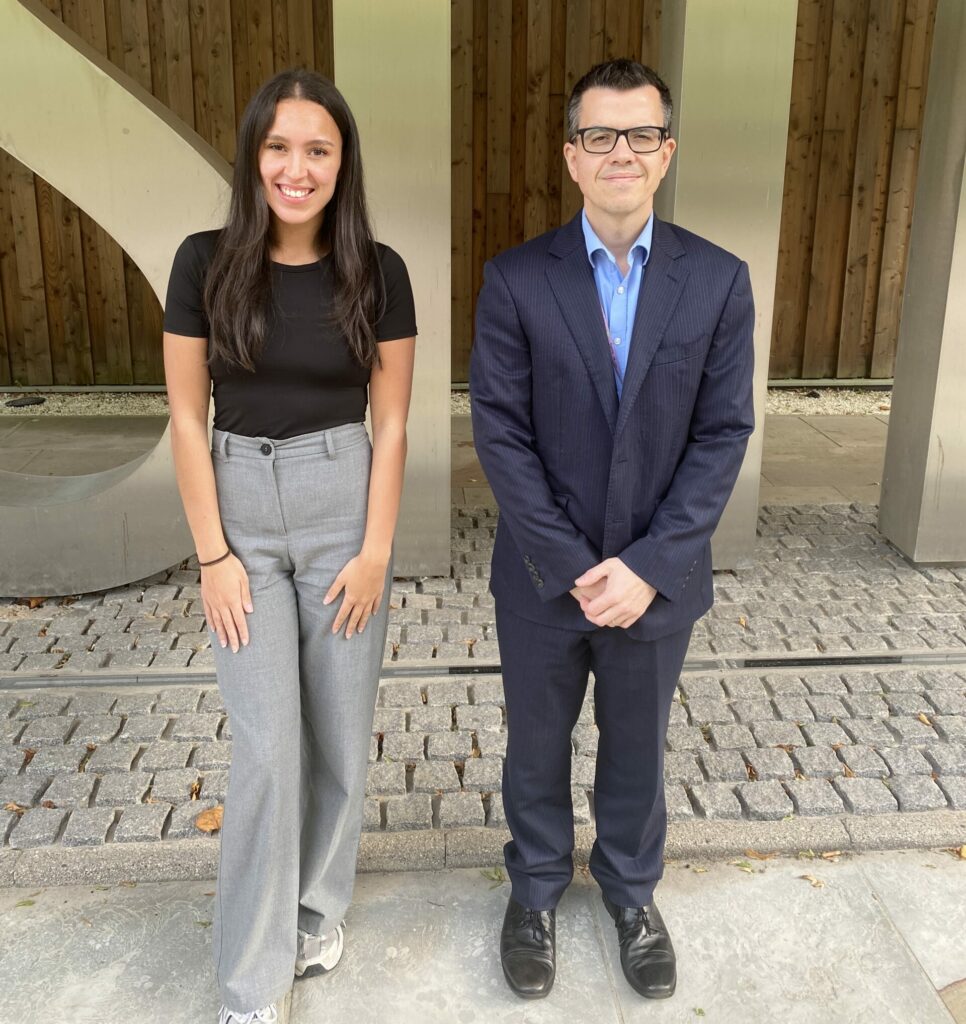What is MND
Find support
I have MND
I am supporting someone
Get involved
Research
About MND Scotland

Shanice Allen joins the University of Sheffield team as a PhD student, so we asked her about herself and her thoughts as she starts work on this three-year project: “A significant portion of my academic focus in my masters degree involved researching the biological aspects of Motor Neuron Disease (MND). Following a period of employment in scientific publishing, during which I had the privilege of conducting insightful interviews with patients, my interests shifted towards gaining an understanding of the experiences of patients facing MND. I now hope to contribute to the enhancement of care for those afflicted with inherited MND by improving the design of information resources related to reproductive options and how best to design services offering clinical advice on this topic to these people. I would also like to express my gratitude to MND Scotland for their invaluable support in funding this important research.”
People with MND have an identifiable genetic cause. Recent clinical trials are testing treatments that target specific genetic forms of MND, which will likely lead to more people with MND undertaking genetic testing.
People with a genetic condition have choices about their reproductive options and can use preimplantation genetic testing, coupled with in vitro fertilisation, to guarantee that they have an unaffected child. The number of people with genetic MND using such reproductive services is low and the research team at the University of Sheffield want to find out why.
Shanice will be undertaking a study to find out if people with genetic MND, and their unaffected relatives who have had a test and found out they carry the MND gene change, are being offered advice on reproductive options which could help them have an unaffected child.
Shanice will also be involving the doctors and nurses who look after people with genetic MND to understand their level of knowledge about reproductive options.
The MND Scotland ‘What Matters to people affected by MND’ survey in 2022 identified that concerns about genetic components of MND and how family members could potentially be affected was a concern for 18% of people with MND and 20% of bereaved family members
This project hopes to start to address this issue by identifying whether people with genetic forms of MND want to be told about reproductive options and what information they would like. It will also help to understand how best to design services that offer reproductive options to people with genetic MND.
Dr Alisdair McNeill said: “We recognise that there are many potential barriers to families affected by genetic forms of MND accessing reproductive medicine options. We want to understand what these are, and find ways to ensure equitable access for MND families.”
Dr Jane Haley MBE, Director of Research at MND Scotland said: “The MND Scotland survey in 2022 identified that people affected by MND sometimes had concerns about genetic components of the disease and how family members may be affected. We are supporting this new research project to better understand if information about reproductive options is provided, and how and when that information should be made available to people with a genetic form of MND.”
Sign up
for newsletter
Get the latest news and events straight to your inbox.
You can help create a world without MND